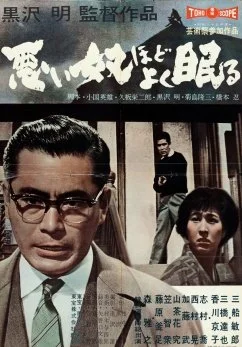Cinema Cross-Pollination by Craig Hammill
Each art form has had its pinnacle moment.
For painting, it’s arguable it was the Renaissance of the 16th century.
For orchestral music, the 18th and early 19th century German and Austrian composer trio of Bach, Mozart, and Beethoven.
For the novel, the mid-19th century apex of Dostoyevsky, Dickens, George Eliot (Mary Ann Evans), Melville, Tolstoy, Dumas, Balzac.
For movies, the mid twentieth century.
Which leads me to my unsettled question. Has the era of movies and cinema passed?
While aspects of that question upset me because the signs around us often point to yes, some inner voice inside me says no.
After all, painting has seen several subsequent revolutions-Van Gogh and the impressionists of the late 1800’s, Picasso and the Cubists of the early 20th century.
Make it stand out
Whatever it is, the way you tell your story online can make all the difference.
Music has had several shocking and exhilarating rebirths including jazz, rock and roll, hip hop, etc.
And some of the greatest novels of all time were written very near our own time: Gabriel Garcia Marquez’s One Hundred Year of Solitude as recently as 1967, Stephen King’s The Stand in 1978.
So ultimately, I find myself someone who believes in cycles. The ocean ebbs and flows. The moon waxes and wanes. The sun rises and sets. Movies stumble and resurge.
Yet, I wonder if maybe one of the reasons we feel movies are at a lower tide right now is that too many movies are cannibalizing other movies.
The art form is chasing after previous exemplars of the art form. And consequently we have a kind of in-breeding producing a not so strong, robust off-spring.
I say this because I just finished reading Middlemarch by George Eliot (pen name of Mary Ann Evans). And I ultimately agree with what folks have said about it: it truly is one of the greatest novels ever written.
As I adjusted to the mid-19th century dense style Eliot employed (at least for large parts of the first half of the book) and her revolutionary (to me) ability to move from third person omniscient writing to third person limited passages, a thought kept crystallizing somewhere inside me.
I’ve never read or seen anything like this. How did she do this? This is wildly inspiring.
For those unfamiliar, Middlemarch: A Study of Provincial Life tells the story of a handful of captivating yet very grounded real characters as they rise, fall, struggle, fight, give up, awaken, get back up, realize across several years (the early 1830’s) in the life of a small English country town.
What Eliot does that is so revolutionary is that she somehow manages to be both incredibly cutting yet ultimately empathetic with the shortcomings of her characters. And she often restricts the narrative to how that character would see a situation. Which ironically allows us the reader to have a deeper understanding of that character but also the misunderstandings (or limited understandings) that lead people to really bad decisions.
The reason I’m going off on this book isn’t to give you PTSD flashbacks of high school or introductory college English classes. But rather it is to share, humbly I hope, a realization I had:
Reading good books can help one make good movies.
Looking at good paintings can help one make good movies.
Listening to great symphonies can help one make great movies.
But watching great movies might actually not help as much.
That might seem counterintuitive. Or you might be yelling at me right now as you throw down your tablet in disgust and say, “F@#! this a#$ clown.”
But for as much as Akira Kurosawa loved cinema, he often talked more about the influence a great crime thriller novelist like Ed McBain had on him in making High and Low.
Or how Beethoven’s Ninth Symphony captured a feeling he wanted to express in Red Beard.
Or how Shakespeare’s Hamlet inspired him to make The Bad Sleep Well.
Jean Renoir used the comedic plays of Beaumarchais and Marivaux to inspire him to make The Rules of the Game. Or how the stories of WWI prisoners of war inspired him to make Grand Illusion (rather than other prison escape movies).
Cross-pollination via insects and wind is critical to nature. It’s always struck me that means it’s critical to great movies.
I’ve written about this in some ways before. So I’ll leave off shortly so you can get on another train.
But I’m here to preach the evangel of the great novel, the great painting, the great piece of music, the great building, the great family storyteller, the great observation as a potential way to make our cinema reach heights we didn’t feel ourselves capable.
Ultimately, it strikes me that the great moviemakers of our moment and the future might have to be polyglots who steep themselves in many disciplines and art forms and find ways to translate inspiration from one medium to another.
And in that act of dynamic translation discover new techniques and stories and ways of telling those stories that replenish and reenergize our art form.
So yeah. . .basically read Middlemarch.
Craig Hammill is the founder.programmer of Secret Movie Club.



